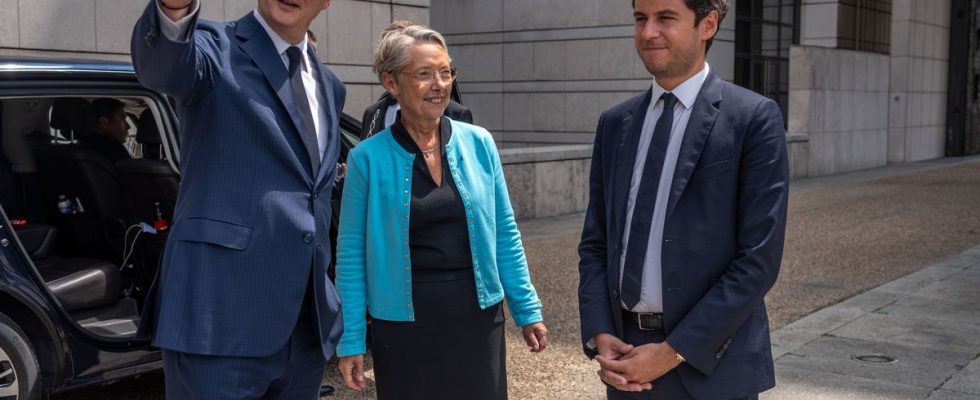No more magic money? This mantra, repeated at will by Bruno Le Maire, Minister of the Economy, since the Covid crisis is struggling to see the light of day. New attempt on Monday, where the government said it had identified “at least 10 billion euros in potential savings”, mainly in health spending and fuel tax benefits. And the whole thing is only supposed to be a “step” to contribute by 2027 to the recovery of the degraded accounts of France.
It must be said that France has failed several times to be slapped on the knuckles by the S & P Global agency, which notes the ability of a country to repay its debt – rather colossal debt in the context of France. The worst was avoided in June, with a rating maintained at AA, one of the best possible. Still, Bruno the Mayor does not want to play with fire again and that the draft budget for 2024 “will require at least 12 billion euros in savings”, according to Bercy.
Time to tighten your belt
“Now that we are back to normal, who would understand that we continue to spend so much? “, said the Minister of Economy, opening in Bercy the Assizes of public finances. These savings will have to be found on health, by fighting against the explosion of sick leave and “the excesses” of drug expenditure, he detailed.
Housing aid with the abolition of the Pinel system and the overhaul of the zero-rate loan (PTZ), for a saving of two billion euros, as well as support for employment in this period of low unemployment are also in the government visor, more specifically apprenticeship and the personal training account.
Savings everywhere
Another target, the tax advantages on fuels enjoyed by certain professions such as road hauliers or farmers, while France is embarking on the shift to energy transition. They will be phased out by 2030, with support to enable these professions to make this shift.
Asked about the need to find other savings for the draft 2024 budget, a source at Bercy indicated that “there will be others” which will total “probably more” than 12 billion euros, citing a assessment by the Court of Auditors. The Assises are only a “stage”, she added.
“Not an ax policy”
The objective is to reduce France’s heavy indebtedness to 108.3% of GDP (Gross Domestic Product) in 2027 (compared to 111.6% at the end of 2022), which ranks it on the side of the poor European students, and to bring it under the European target of 3% the public deficit (4.7% at the end of 2022). For this, the government is also betting on the end of this famous “magic money” with the end of the energy shield, but also the gains from reforms such as pensions or unemployment insurance, and full employment.
Bruno Le Maire, however, rejected “austerity” and said he did not want an “axe policy, which would kill our growth (…) by cutting expenses blindly”. But “we must assume that we have to save money when we find that the devices do not achieve their results or do not achieve their results enough”, declared Prime Minister Élisabeth Borne at the end of the Assizes.
Good luck anyway
These efforts are deemed all the more necessary as the economic environment is getting tougher, with the re-establishment of European budgetary rules next year and the sharp rise in interest rates which is significantly increasing the debt burden. The government could also, when presenting its next budget, revise its growth forecast for 2023, currently 1% and considered optimistic by most economic institutes.
But between refusal to increase taxation and social tension in the face of high inflation, the enterprise of controlling expenditure promises to be delicate. Especially after a painful pension reform and without an absolute majority in the National Assembly. Proof of this is if there really was a need for it, the three main associations of local elected officials had shunned this Assizes, believing that they disagreed with the analysis of the situation. Good atmosphere.

